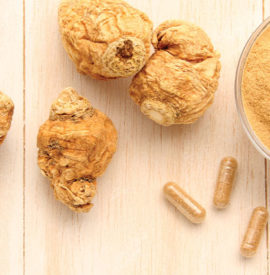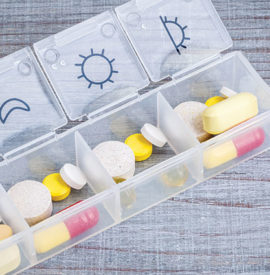According to a study published in the Center for Disease Control and Prevention’s journal Preventing Chronic Disease that surveyed approximately four million U.S. households, an estimated 10 million American adults reported being affected by symptoms of memory loss and confusion.
Brain-related changes are a normal part of the aging process. The level of blood flow in the brain decreases, for instance, which may be one cause of forgetfulness.
A number of lifestyle factors, including a healthy diet and supplements can help support healthy brain aging. Natrol Cognium contains a unique brain-protecting ingredient – a silk protein hydrolysate – that has been studied extensively for its ability to improve memory and performance.
A Korean study found that the silk protein in Cognium, also known as Brain Factor-7 or BF-7, improved brain functioning of adults participating the study by protecting the brain from free radical damage. Another study found that BF-7 enhanced the memory of study subjects who were given the supplement, while those in the placebo group did not experience this benefit.
Studies showed improvements in memory and cognition in as little as four weeks. The recommended dosage is 100 milligrams (one tablet) twice daily with food.
Learn more about Natrol Cognium, including a retailer directory here or buy online at Vitacost.com.
According to the Mayo Clinic, other tips besides a healthy diet to help keep your memory sharp include:
- Stay mentally active. Doing puzzles or learning to play an instrument are great ways to keep your brain in shape. It’s as important as staying physically fit.
- Socialize. Spending time with family or friends is a great way to combat stress and depression, conditions that can contribute to loss of memory.
- Organize your life. If your space is a cluttered mess, you may be more likely to forget things than those who keep things neat and tidy. Keep items like keys in the same place so you always know where they are.
- Get enough rest. Most adults need between seven and nine hours of sleep for their brain and body to recover each day, but statistics show that most people aren’t getting nearly enough rest. Make sleep a priority.
- Exercise. Getting your heart rate up increases blood flow to your entire body, including your brain. Aim for 150 minutes of brisk walking or other moderate aerobic activity every week.
- Stay on top of your health. If you are being treated for any chronic health conditions such as diabetes, depression or thyroid issues, make sure you are following your doctor’s orders. The better your physical health, the better your mental health will be.
Karen Morse, MPH, is a freelance health and nutrition writer. In her free time, she enjoys Pilates, exploring nearby hiking trails and cooking up fresh, seasonal eats in the kitchen. Her work has appeared in Clean Eating, Weight Watchers, YouBeauty.com and others.











Comments
Hello Karen,
We would like to let you know that Brain Factor-7 or BF-7 is Famenity’s brand and we have never supplied it to Cognium. If they mention to use Brain Factor-7 or BF-7, it’s false advertisement. Please see our website, https://famenity.com/en/.
Thanks,
Famenity